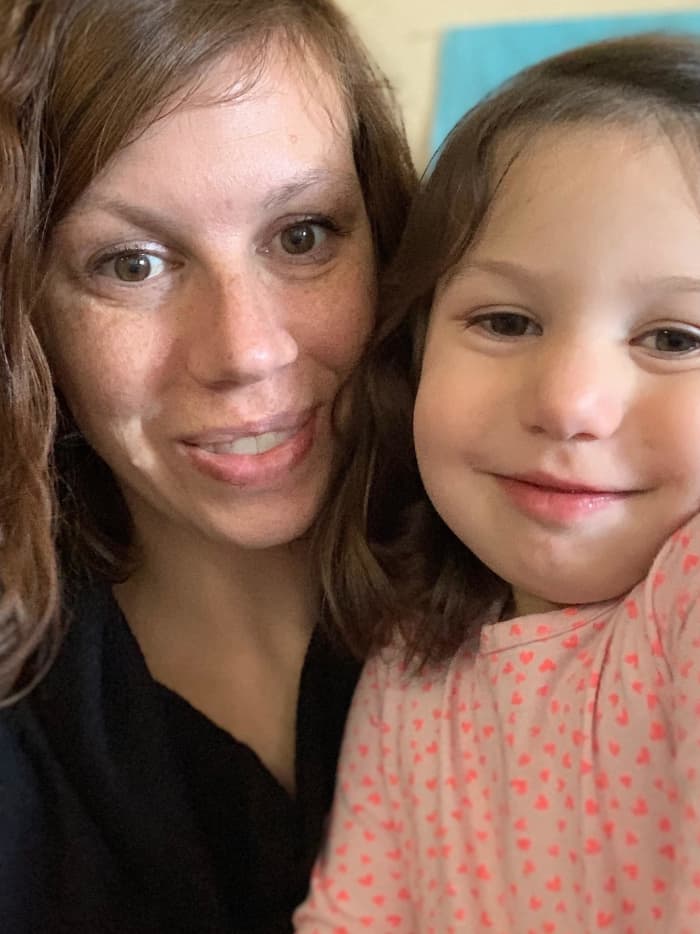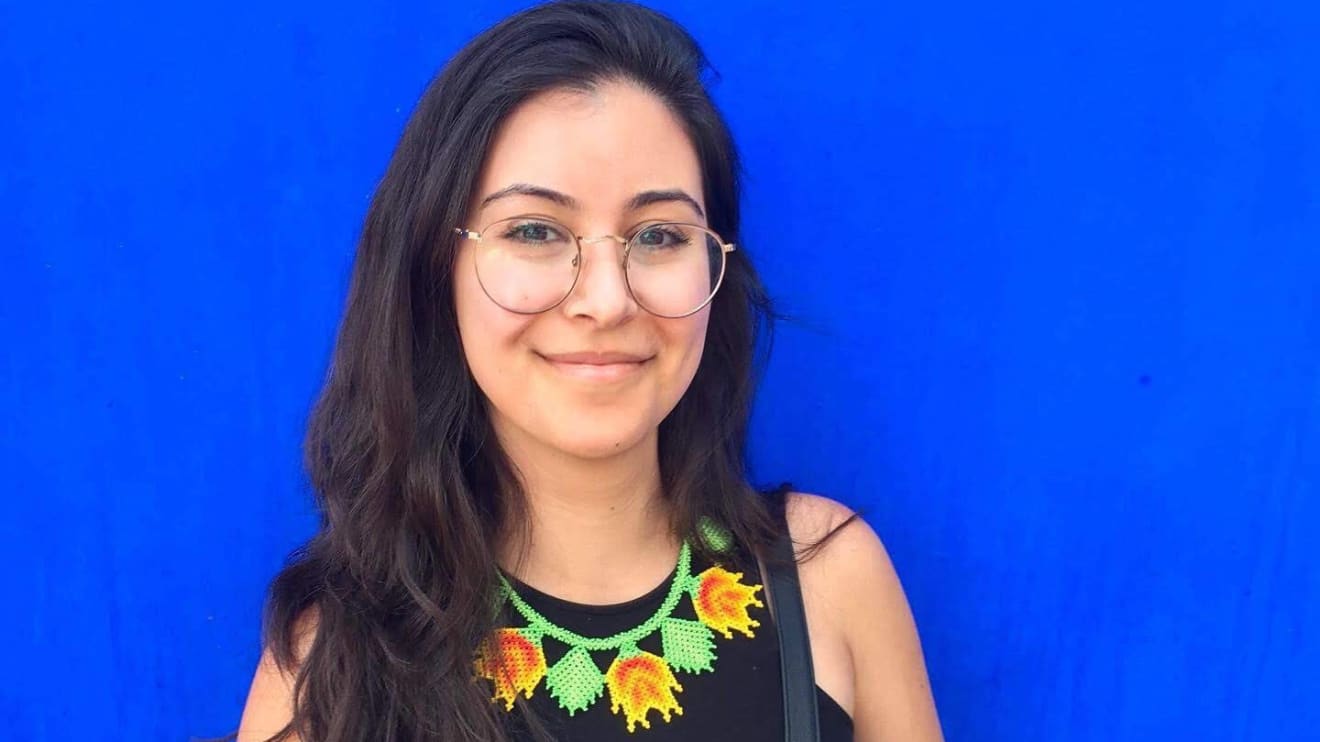This post was originally published on this site
Late adopters of the COVID-19 vaccines are out there — but how do you approach them, if at all?
They deserve patience, not shaming, says 40-year-old Theresa Chapple, who says her sister was vaccinated recently after opting to “wait and see” how the vaccines worked out for others.
As of Monday, nearly 58% of the total U.S. population and 70% of adults had received at least one dose of the vaccine. But is it possible to change someone’s mind if they have told their friends and family that they don’t trust the vaccination process — or, for that matter, the federal government?
The vaccines from Johnson & Johnson
JNJ,
the Pfizer-BioNTech partnership
PFE,
BNTX,
and Moderna
MRNA,
are all issued under emergency-use authorization, a faster process that’s less rigorous than full Food and Drug Administration approval.
“
Is it possible to change someone’s mind if they have told their friends and family that they don’t trust the vaccination process — or, for that matter, the federal government?
”
Emergency-use authorization is used exactly for circumstances such as this — a global pandemic like COVID-19 or HIV/AIDS and, according to the FDA, “chemical, biological, radiological and nuclear threats including infectious diseases.”
While Chapple’s sister had exercised great caution against the coronavirus and received other immunizations in the past, she also had concerns about the speed with which the COVID-19 vaccines were developed.
But her concerns went deeper than that. She also had distrust of “what type of vaccine” the government might send to Black communities, said Chapple, an epidemiologist and director of the Oak Park, Ill., public health department.
Her sister had also previously had negative reproductive healthcare experiences. “She really believed there’s a difference in medical treatment, medical access, that you get based off of status, income [and] race in America,” Chapple, who is Black, told MarketWatch. “She didn’t want the leftovers.”
“
Theresa Chapple’s sister had concerns about ‘what type of vaccine’ the government might send to Black communities.
”
Chapple listened to and validated her sister’s concerns, inserting relevant data and updates from the scientific community to shift the narrative “little by little” when she found openings.
She acknowledged that the medical establishment had made missteps, drawing distinctions between the U.S. government’s shameful 40-year Tuskegee experiment and its more recent efforts to boost vaccine access in communities of color hit hard by the pandemic.
She even encouraged her sister to get vaccinated in a predominantly white neighborhood, if that would give her greater peace of mind.
Chapple’s sister and teenage niece were vaccinated about a month ago, after experiencing “positive peer pressure” from being the last members of their bubble still unvaccinated, she tweeted recently.

Epidemiologist Theresa Chapple said she encouraged her sister to get vaccinated in a predominantly white neighborhood, if that would give her greater peace of mind.
Courtesy of Theresa Chapple
“What finally got through to her was her 15-year-old’s pleas to listen to auntie (me), who always tells them the full truth, not just the rainbow shiny stuff,” she added.
With stagnant COVID-19 vaccination rates in a pandemic that have worsened in the U.S. in recent weeks, an increasing number of employers have embraced vaccine mandates.
Meanwhile, an internal Centers for Disease Control and Prevention document said the more-transmissible delta variant meant “the war has changed,” with the agency recommending last week that even vaccinated individuals in many areas resume masking up indoors.
Andy Slavitt, a former adviser to the Biden administration on COVID-19, recently suggested that up to 99% of the Americans dying of the coronavirus were unvaccinated.
The share of Americans who want to “wait and see” before getting vaccinated has dwindled since late 2020, while the shares of those who will get the vaccine “only if required” or “definitely not” have barely budged in months, according to June polling by the healthcare think tank KFF.
“Black and Hispanic adults along with younger adults remain somewhat more likely than their counterparts to say they will ‘wait and see’ before getting vaccinated, while Republicans, rural residents, and White Evangelical Christians continue to be disproportionately more likely to say they will definitely not get vaccinated,” KFF’s recent report said.
“
‘Getting pockets of two, five, 10 people in a community vaccinated — those are huge wins.’
”
But health experts and laypeople who shared their own tales of persuasion with MarketWatch suggested it was still possible — and worthwhile — to attempt to change individual minds about vaccination, even this late in the game.
“A lot of this is now ground game. We’re not seeing vaccination clinics of thousands or tens of thousands as we did in January through March and April,” said Ashley Ritter, the CEO of the science-communication project Dear Pandemic and director of clinical care research at the Philadelphia nonprofit NewCourtland.
“Getting pockets of two, five, 10 people in a community vaccinated — those are huge wins,” she said.
You may not be able to persuade everyone, of course, and some people may have medical, religious or other reasons for not getting vaccinated that are beyond the powers of persuasion, even by the most well-intentioned relatives.
But, given federal health officials’ warnings that the country faces a “pandemic of the unvaccinated,” here are some strategies for those who believe it’s their responsibility to try:
Don’t assume they’re an ‘anti-vaxxer’
You can’t oversimplify the “complex” pool of unvaccinated individuals, who have a range of cultural, historical and pragmatic concerns, said Wafaa El-Sadr, a Columbia University professor of epidemiology and medicine.
“Everybody who refuses a vaccine is not an ‘anti-vaxxer,’” said Scott Ratzan, a physician and distinguished lecturer at the CUNY Graduate School of Public Health. For example, more than half of unvaccinated people surveyed by KFF in June cited the newness of the vaccines and concerns about side effects as major reasons.
Many people are “vaccine ready” and receptive to communication from trusted messengers like their doctors, friends or religious leaders, and may just need a “nudge” from their employer or school, Ratzan added.
Try a personal appeal
Make a personal plea for why you care so much about this person getting vaccinated, and explain why you chose to get the shots yourself, said primary-care doctor Kavita Patel, a nonresident fellow at the center-left Brookings Institution who served as a policy director in former president Barack Obama’s administration.
Sarah Wardein, 32, of Virginia Beach, Va., took this approach. Wardein recently learned her mother-in-law, who felt mortality was inevitable and believed that antibodies from her COVID-19 infection last summer would protect her, was planning to forgo vaccination.
When her mother-in-law said she assumed this meant Wardein and her husband wouldn’t want her visiting for their daughter’s upcoming birthday, Wardein says her heart dropped.

Sarah Wardein with her nearly 4-year-old daughter, Elouise Jane.
Courtesy of Sarah Wardein
In a lengthy text message the next day, Wardein expressed — along with warnings about the delta variant and information on the benefits of vaccination — how much she loved and appreciated her mother-in-law.
“I lost my mom to suicide (by drowning), and my dad to alcoholism. Both preventable deaths. I don’t want to lose you from something equally preventable,” she wrote in the message, which she shared with MarketWatch. “You bring so much joy and light to my and the girls’ life.”
Wardein’s mother-in-law sent a photo of her COVID-19 vaccination card later that day. “I don’t know if I hit a nerve. I probably will never find out,” said Wardein, who says she took care to center the discussion around her mother-in-law. “But at least I said it all, and she took steps to protect herself.”
It’s not a one-way conversation
“You’re not going to convince people without letting them air their grievances, and they’ll automatically think they’re in a fight if you’re just preaching to them,” said Brandon Bradford, 35, of San Jose, Calif., who works in renewable energy development and says he has convinced several friends and coworkers to get vaccinated.
And remember: What one person views as grievances may be another person’s deeply felt concerns.
Ponta Abadi, 29, of Washington, D.C., had long feared for the safety of an older relative with preexisting health risks — but says her vaccine-hesitant loved one backed out of the vaccination appointment she had scheduled for him.
“
‘What I learned is the temptation to try to fact-check someone, especially when you have a lot of knowledge …is not actually useful.’
”
While he had never espoused any QAnon-related beliefs, Abadi found useful advice on Reddit’s “QAnon Casualties” forum, which offers resources for communicating with loved ones “taken in by” the conspiracy theory.
“What I learned is the temptation to try to fact-check someone, especially when you have a lot of knowledge … is not actually useful,” said Abadi, who works in public health. “There’s a big focus on empathizing with the person and making sure they feel heard.”
Abadi looked up common concerns about the vaccine and talked to her relative on the phone, referencing notes on her computer. She responded with language like “Yeah, I wondered about that too” and “I totally understand that, and that makes sense as a concern,” she said.
Ultimately, “the idea that he would be able to see me again if he got vaccinated was what I think drove him to get the vaccine,” Abadi said. Seeing her sob with relief on a FaceTime call afterward, she added, likely “helped him feel more secure about making the decision.” “He saw that I wasn’t lying when I said it mattered to me.”

‘There’s a big focus on empathizing with the person and making sure they feel heard,’ says Ponta Abadi.
Courtesy of Ponta Abadi
Meet them where they are
A.C., a West Texas resident who asked that MarketWatch withhold her full name to protect the identities of those she had counseled about vaccination, said that losing her mother to COVID-19 shortly before the first vaccines were authorized had made her passionate about getting her fellow community members vaccinated.
She said she has swayed dozens of people on vaccination — including family members and acquaintances, about two-thirds Republican and one-third Democrat — by using “common sense to appeal to their logic.”
Many have expressed concerns stemming from “disinformation” they heard in church, from religious leaders or on TV, she said. (Meanwhile, many faith leaders have also encouraged their followers to get vaccinated.)
“
‘I would say, if you’re pro-life, you want to keep everyone alive — especially ones that are already here.’
”
For example, A.C. said she told one woman who believed God would protect her from the virus to get vaccinated “not because you don’t feel that God is protecting you, but because you know also that God has also instituted other means by which we can be healed and taken care of.” “I said, ‘Is there anywhere in the Bible where God is opposed to hospitals or medicine?’” she said.
In response to “pro-life” arguments against vaccination, A.C. questioned why people wouldn’t take steps to protect their own lives and their children’s. “I would say, if you’re pro-life, you want to keep everyone alive — especially ones that are already here,” she said.
(While the vaccine makers used decades-old fetal cell lines in testing or production and manufacturing, the vaccines themselves do not contain any fetal tissue.)
Allow for follow-up questions
“Be specific and answer the concern that somebody’s raising,” El-Sadr said. “Almost take it as homework, and try and do the research and come back with a response.”
Bradford, for example, said he pulled out a laptop and whiteboard for an informal lunchtime discussion with coworkers who had vaccine concerns — writing down questions and answers, clearing up misunderstandings, letting people “flesh out their worries,” and asking lots of follow-up questions.
A graphic showing how the vaccine was safely developed at such unprecedented speed proved particularly useful, Bradford said.
“Most of the time, there’s one or two pieces of misinformation that they build their entire mindset from,” he added, and it’s important to root that out.
Stories may hit home more than data
“People are more influenced by stories and anecdotes than by statistics,” said Gretchen Chapman, a professor of psychology at Carnegie Mellon University, citing a wide range of social psychology literature.
In other words, it’s probably more compelling to explain what helped you overcome your own vaccine hesitancy and describe the mild but normal side effects you experienced, rather than dive into county-level data on vaccination and hospitalizations, Chapman said.
Play the long game …
There’s no magic bullet to make someone fully confident in vaccination, El-Sadr said: “It’s a matter of having an ongoing conversation, and there’s no guarantee of success.”
“With my sister, it was not a one-time conversation,” Chapple said. “This was months long, and it was not overwhelming or overbearing — just [out of] our two-hour engagement with each other, let’s spend seven minutes discussing what your thoughts are today.”
… but strike while the iron is hot
Some people have no strong feelings about vaccination, but rather “this sense of, ‘I can’t bother, it’s too complicated, I’m too busy,’” El-Sadr said. In that case, “the most important thing one can do is to facilitate them getting the vaccine, and encourage them, and in every way make it easy for them.”
That means that when your friend says they’re willing to get vaccinated, you should “be ready with the pharmacy that has walk-in hours; be ready to drive with that individual to get vaccinated, and stay with them while they get vaccinated,” Ritter said.
“No one’s going to jab them without their consent,” Patel said, but making vaccination as convenient as possible helps make it hard to refuse.
“
‘Don’t yell; don’t berate; don’t tell the person you’re an idiot; don’t cut them out of the family over this one issue.’
”
Try an ‘emotional vaccine passport’
Patel suggested employing what she calls a “social” or “emotional” vaccine passport — saying, for example, “I love you, you mean a lot to me, and you’re not coming into my house unless you’re vaccinated. It’s not personal; it’s for my family’s safety.”
“If it’s, ‘My son’s turning 5 and I really want you to come, but I can’t let you come unless you get vaccinated,’ that actually works on people,” Patel said, noting that many people are planning weddings and other events. “People want to get back into social gatherings.”
Framing vaccination as a key to unlocking certain freedoms — to take in a baseball game or go to church, for example — may also be effective, a recent Atlantic piece suggests.
Drive home the risks of remaining unvaccinated
Many people haven’t been vaccinated because they think their risk-mitigation strategies have worked thus far and don’t see the risks in contracting the virus, Ratzan said. “So we have to continue to let people know that COVID is real, people are dying, and the number of cases each day not only threatens them but their families and others,” he said.
The golden rule: avoid shaming and insults
“Don’t yell; don’t berate; don’t tell the person you’re an idiot; don’t cut them out of the family over this one issue,” Chapman said.
After all, not everyone wants to be the first to do something, Chapple added — and “just because you’re in the middle or close to the end does not mean you should be shamed.”
Also read: Should Black and Latino people get priority access to a COVID-19 vaccine?

